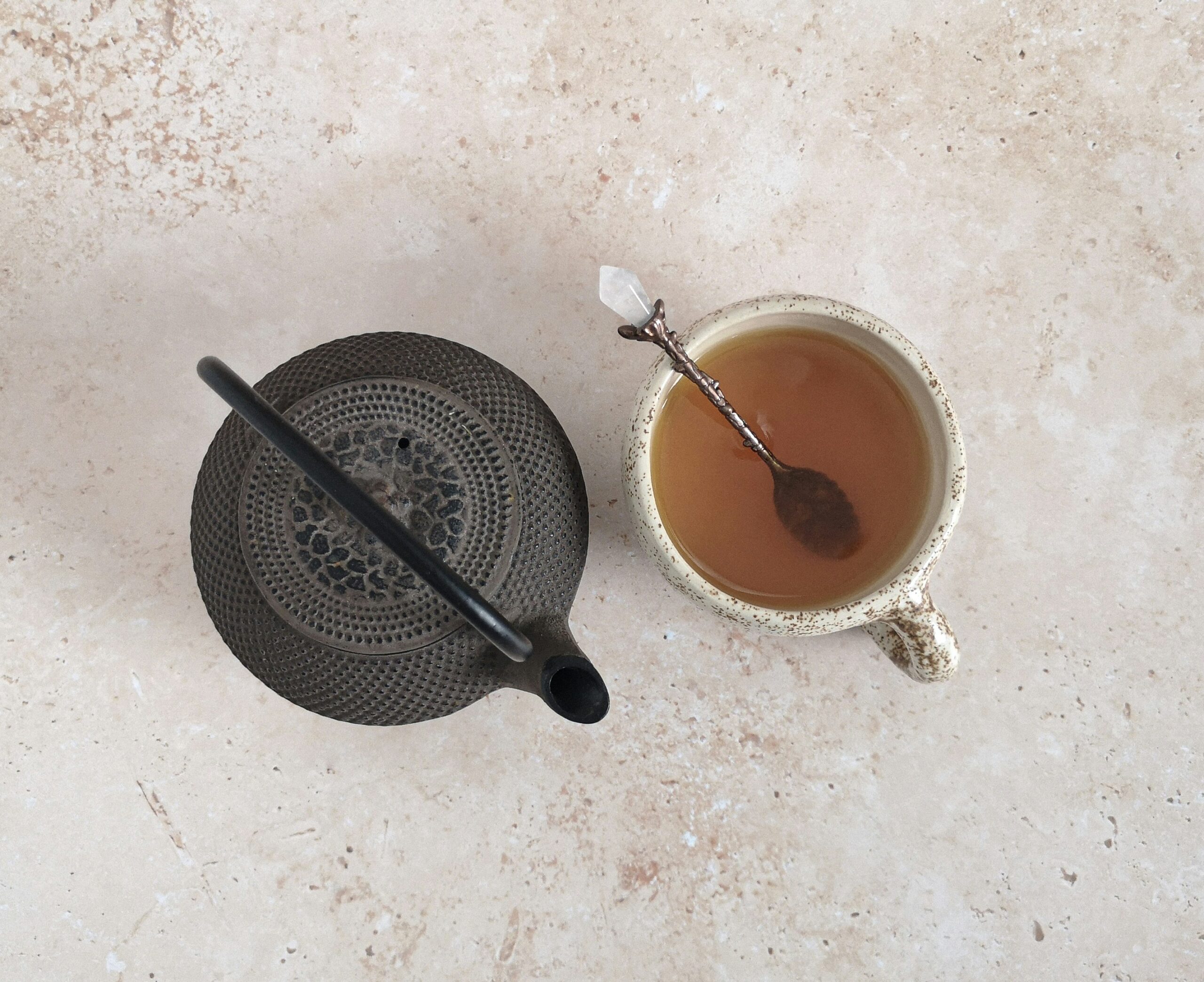

Herbal Remedies for vaginal dryness are a common remedy among women, particularly during the menopausal transition and postmenopausal period. This discomfort can have a significant impact on a woman’s quality of life, ranging from daily irritation and itchiness to painful sex during sexual intercourse. While various factors contribute to the condition, hormonal changes are often a primary cause. Recognising the potential side effects and contraindications of conventional treatments, some women seek alternative medicine to manage their symptoms.
Herbal remedies have become increasingly popular for the natural management of vaginal dryness. These remedies range from topical applications to oral supplements, with some showing promising results in easing symptoms. They often come with a lesser risk profile than hormone replacement therapy and can be especially attractive for those looking for a more holistic path to wellness. Women are encouraged to investigate and understand the options available to support their vaginal health and to consult healthcare professionals when considering any new treatment.
Key Takeaways
- Vaginal dryness is a prevalent condition that can affect quality of life, and it is often addressed with herbal remedies.
- Natural treatments for vaginal dryness focus on alleviating symptoms with a lower risk compared to hormonal therapies.
- Consulting healthcare professionals is crucial when exploring treatments for maintaining women’s health.
WHAT ARE WE TALKING ABOUT TODAY?
- Understanding Vaginal Dryness
- Herbal and Natural Remedies
- Supporting Vaginal Health
- Professional Care and Medical Options
Understanding Vaginal Dryness
Vaginal dryness can be a distressing issue, often linked to hormonal changes and environmental factors. It’s vital for those affected to recognise the underlying causes in order to find the most appropriate remedies.
Hormonal Factors
Hormonal fluctuations are a primary cause of vaginal dryness. During menopause and perimenopause, oestrogen levels significantly decline, which may lead to dehydration of the vaginal tissues. These hormonal imbalances can disrupt the natural lubrication of the vagina, leading to discomfort.
Lifestyle and Environmental Factors
Lifestyle choices and environmental factors also play a significant role. Stress, for instance, can exacerbate hormonal imbalance, potentially affecting vaginal health. Regular use of harsh soaps, douching, and certain hygiene practices may also contribute to or worsen dryness. Adequate hydration is crucial, as dehydration can have a negative impact on mucous membranes, including those in the vagina.
Herbal and Natural Remedies
In managing symptoms of vaginal dryness, many women turn to herbal and natural remedies as alternatives to conventional treatments. These options can range from plant-derived oestrogens to natural oils that serve as moisturisers, and even dietary changes that support overall vaginal health.
Plant-Derived Oestrogens
Phytoestrogens, or plant oestrogens, mimic the effects of oestrogen in the body and may provide relief for vaginal dryness. Soy products and flax seeds are rich in these compounds. Black cohosh and wild yam extracts are also commonly used herbal supplements that may provide phytoestrogen benefits, supporting to alleviate menopausal symptoms, including dryness and discomfort.
Red clover is a herbal remedy sometimes used to address vaginal dryness, particularly during menopause. There is also scientific evidence of red clover being effective in lowering blood glucose and having beneficial effects on the prevention of cardiovascular disease.
Red clover may be used to enhance fertility and support estrogen balance in women. It is considered pregnancy preparation tonic, purifying the blood and supplying essential vitamins and minerals. Additionally, studies suggest red clover may increase breast milk production by stimulating prolactin secretion. The safety of red clover is still inconclusive. Seek medical professional guidance if considering to incorporate into your routine.
Here’s an overview summary:
Benefits
- Phytoestrogens: Red clover contains isoflavones, plant compounds that mimic estrogen in the body. This can help alleviate symptoms of estrogen deficiency, including vaginal dryness.
- Hormonal Balance: By potentially restoring hormonal balance, red clover may improve vaginal moisture and reduce dryness.
How to Use
- Supplements: Available in capsules, tablets, or tinctures. Follow the dosage instructions on the product or consult a healthcare provider.
- Tea: Red clover tea can be another way to incorporate this herb into your routine. Brew dried red clover flowers and drink daily.
Precautions
- Consult a Healthcare Provider: Especially important if you have hormone-sensitive conditions (like breast cancer) or are on medications.
- Quality Control: Ensure you use high-quality, reputable products to avoid contaminants.
Alternatives and Additional Tips
- Vaginal Moisturizers: Over-the-counter options specifically formulated for vaginal dryness.
- Hydration and Diet: Proper hydration and a balanced diet support overall vaginal health.
- Regular Check-ups: Routine gynecological visits to manage and monitor symptoms.
While red clover may help some women with vaginal dryness, it’s crucial to consult with a healthcare professional to ensure safety and effectiveness in your specific case.
RELATED: The So-Called Healing Power Of Herbal Tea – An Introduction
Natural Oils and Moisturisers
Natural oils like olive oil and coconut oil are known for their moisturising properties. They can be applied topically as a natural lubricant to provide temporary relief from vaginal dryness. It’s important to note that while these oils are natural, those using condoms should be aware that oil-based products can degrade latex.
Aloe vera is a popular natural remedy for vaginal dryness due to its moisturizing and soothing properties. Here’s a brief guide on its use:
Benefits
- Moisturizing: Aloe vera gel hydrates and soothes dry vaginal tissues.
- Healing: It has anti-inflammatory properties that can help with irritation and promote healing.
How to Use
- Pure Gel: Use 100% pure aloe vera gel, without additives.
- Application: Apply a small amount externally. For internal use, consult a healthcare provider.
- Patch Test: Test on a small skin area first to check for allergies.
Precautions
- Consult a Doctor: Especially before internal use.
- Quality: Ensure the product is free from harmful additives.
- Underlying Causes: Address underlying issues like hormonal changes or medications.
Dietary Considerations
A diet rich in phytoestrogens can assist in alleviating symptoms of vaginal dryness. Individuals can incorporate soy products such as tofu, flax seeds, and other foods that contain these plant-derived compounds. Hydration is also key, as water helps maintain overall bodily functions and can support vaginal health.
Supporting Vaginal Health
In addressing vaginal dryness, one may look beyond medications to lifestyle choices that support overall vaginal health, focusing particularly on hydration and exercise.
Hydration and Lifestyle
Adequate hydration is fundamental for maintaining the moisture levels of the vaginal tissues. Women may benefit from drinking plenty of water throughout the day, which assists in keeping the vaginal mucosa well-lubricated. Dietary choices can also have an impact; for instance, phytoestrogen-rich foods such as soy products may help in maintaining hormonal balance, which is crucial for vaginal health. Additionally, engaging in sexual intercourse regularly can promote natural lubrication, while being mindful to avoid products that can irritate the vaginal area.
Water-based lubricants are a safe, effective solution for vaginal dryness, offering immediate relief and enhancing sexual comfort. For optimal results, choose high-quality products and consult with a healthcare provider if needed.
Exercise and Pelvic Health
Engaging in exercise routines that strengthen the pelvic floor can be beneficial. Pelvic floor exercises, popularly known as Kegels, help in enhancing the tone and functioning of the pelvic muscles, which supports vaginal health and can alleviate symptoms of dryness. Moreover, yoga can be a gentle way to maintain pelvic strength, improve flexibility, and reduce stress. It’s advised to incorporate these exercises regularly into one’s routine for optimal results.
Professional Care and Medical Options
When experiencing symptoms of vaginal dryness, it’s crucial for individuals to consider professional healthcare advice and explore approved medical treatments. Let’s look at when to consult a healthcare provider and the various medical options available, including prescription medications and supplements.
When to See a Healthcare Provider
One should consider visiting a healthcare provider if vaginal dryness becomes bothersome or is accompanied by other symptoms such as itching, irritation, or discomfort during intercourse. These menopause symptoms may be indicative of vaginal atrophy, a condition often related to decreased estrogen levels after menopause. A healthcare provider can conduct a thorough assessment and may test hormone levels to determine the most suitable treatment course.
Assessing Prescription Medications and Supplements
- Prescription Medications: A healthcare provider may prescribe estrogen therapy to alleviate vaginal dryness that is due to hormonal changes. Estrogen can come in various forms:
- Topical creams
- Vaginal rings
- Tablets
Prescription medications must be used under medical supervision due to potential side effects and individual health considerations.
- Supplements: Some individuals may find relief using over-the-counter options like probiotics or vitamin E supplements. Probiotics may help maintain a healthy vaginal microbiota, while vitamin E has been noted for its moisturising properties. However, the effectiveness of supplements can vary, and they should be discussed with a healthcare provider.
Vitamin E oil is a widely used natural remedy for vaginal dryness, particularly beneficial for women experiencing menopausal symptoms. Here’s a concise summary:
Benefits
- Moisturizing: Vitamin E oil is highly moisturizing, helping to alleviate vaginal dryness and discomfort.
- Healing: With antioxidant and anti-inflammatory properties, it promotes healing and soothes irritated vaginal tissues.
- Natural Solution: It offers a gentle, chemical-free alternative to commercial lubricants and moisturizers.
How to Use
- Direct Application: Break open a vitamin E oil capsule and apply the oil directly to the vaginal area. It can serve as a daily moisturizer or used before intercourse as a lubricant.
- Suppositories: Specialized vitamin E vaginal suppositories are available for internal use, offering targeted relief. Follow the product instructions or seek advice from a healthcare provider.
- Oral Supplements: Taking vitamin E orally supports overall tissue health, which can indirectly benefit vaginal tissues.
It’s essential to weigh the benefits and risks of any treatment with a healthcare professional who can provide tailored advice.
RELATED: Deep Conversation Starters For Couples: 100 Questions



Comments +